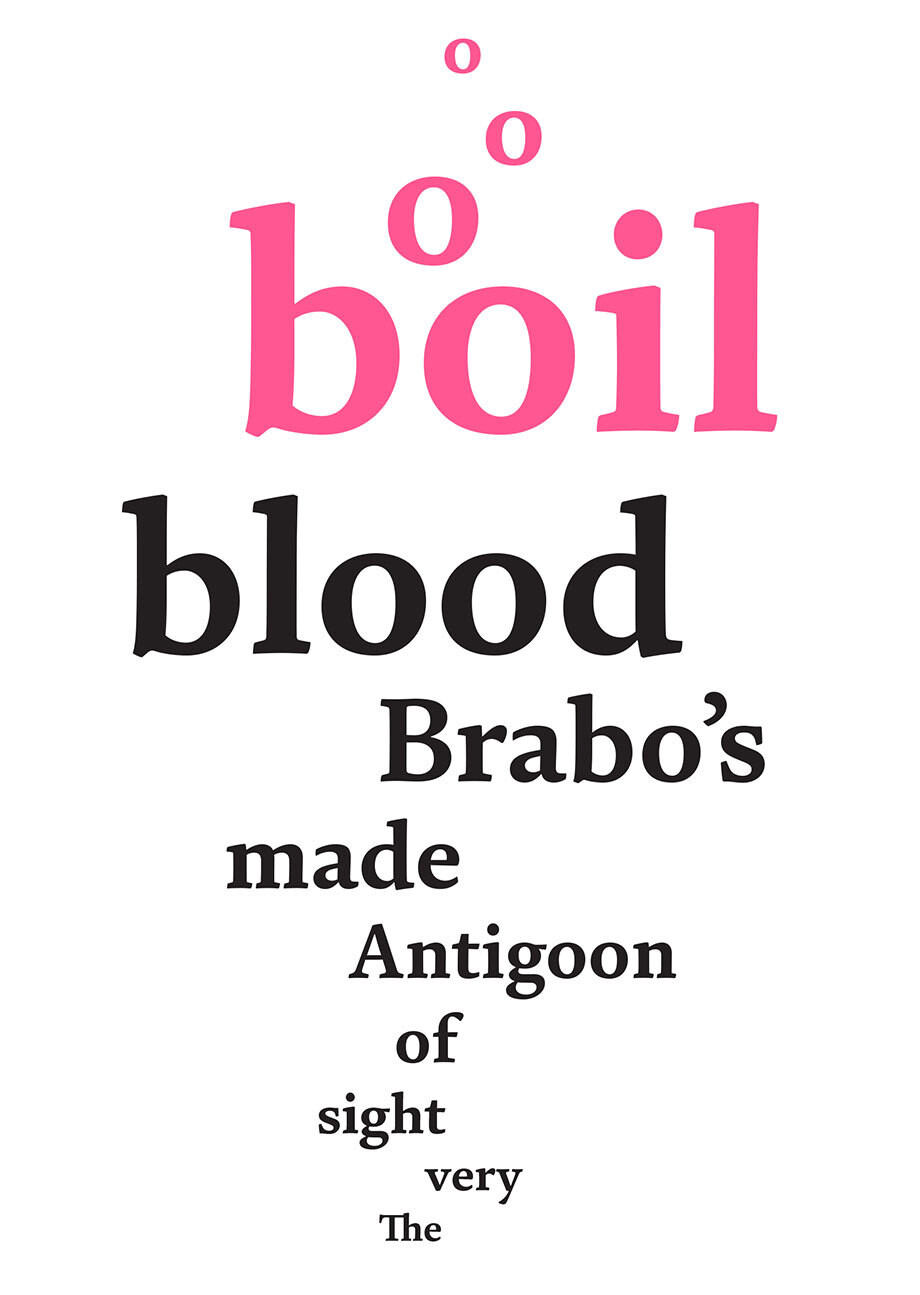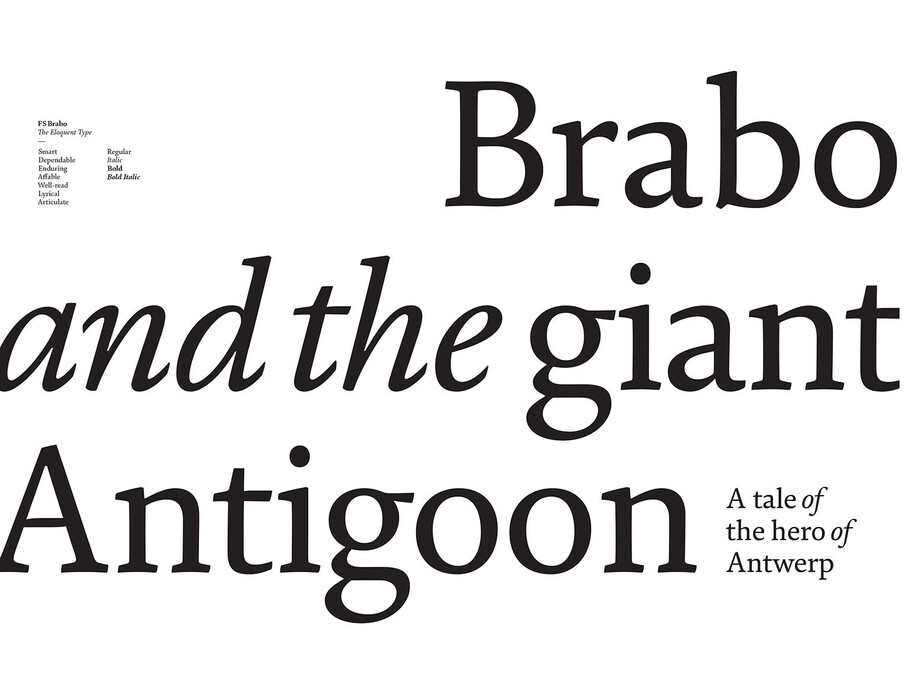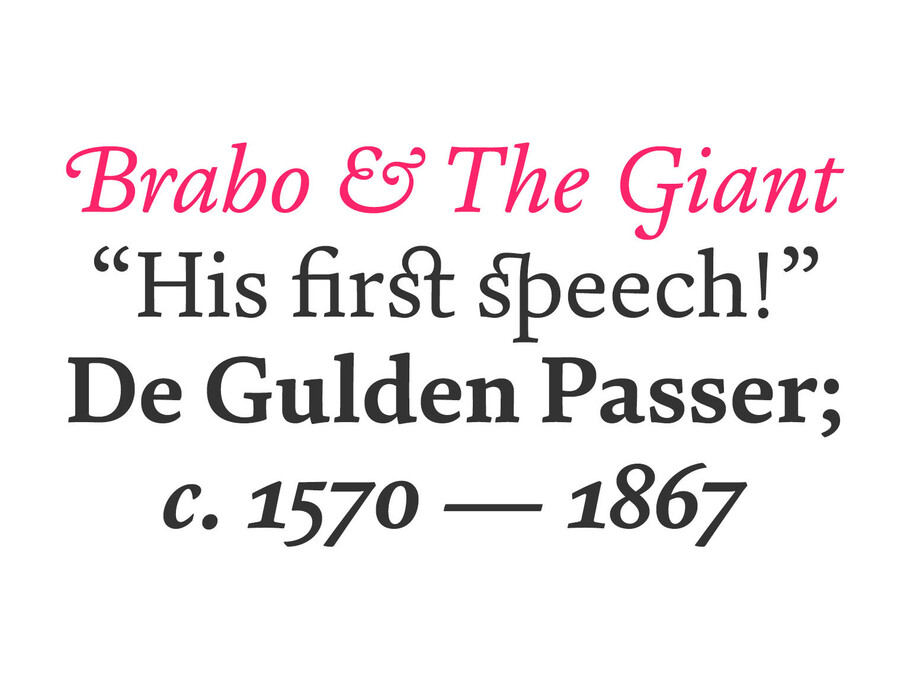Brabo – The Tale of the Hero of Antwerp
Brabo – The Tale of the Hero of Antwerp
Fernando Mello Inspiration
Introduction
Long, long ago, in the Roman province of Belgica, in the chilliest, northernmost reaches of Gaul where the land is flatter than the sea, there was a town where everyone was happy.
The town’s thriving port meant that business was good for everyone. Standing where the River Scaldis doubles back and broadens out on its final meander towards the North Sea, it was a centre for the trade of exotic wines, spices, jewels and textiles.
People from far away were drawn there, seeking their fortune or just a simple livelihood. People of all kinds – young and old, rich and poor, bearded and smooth, good and evil.
Chapter one
Evil arrived in the form of Druon Antigoon. He seemed to appear from nowhere, a heartless, stinking mountain of a man who towered over every market stall and house in the town. His every step shook buildings to their foundations. When he boarded a ship, the vessel would lurch to one side. When he raised his arms, women, children and street entertainers would lose consciousness.
He arrived one icy winter’s morning, battering down the doors of the castle, dismembering the guards and council members with his bare hands, and roaring from the ramparts that the town and all its people were now under his command.
‘What does he want from us?’ asked the townsfolk. They soon had their answer. Antigoon declared that every merchant ship passing through on the river should pay a monstrous toll of half of its stock – booty he would keep for himself.
Antigoon’s greed and cruelty knew no limits. Any captain who refused to hand over his cargo had to fight the ogre for safe passage. The outcome was always the same. Every time, the defiant commander would be beaten to a pulp on the quayside. And every time, as a warning to other rebels, the giant would hack off his hand and hurl it into the river, to the horror of the watching crowd.
Many miles distant, word of Antigoon’s brutality reached the ears of Silvius Brabo, a young but much-respected Roman centurion. Appalled by the tales and determined to cut the colossus down to size, he consulted an oracle on how to find him.
The oracle said, ‘Let the swan be your guide’. Brabo took his sword, shield and horse and set off, following the white swan that had swooped overhead as soon as he left his town.
For days he travelled. The stories he heard on his way of Antigoon’s tyranny only stiffened his resolve. Finally, still a mile away across the flat fields, he could see, hear and smell the giant for himself.

Act Two, Scene One
In which our hero confronts the odious ogre…
Antigoon is at the castle gates. Brabo enters slowly on horseback, dismounts, takes a deep breath and looks up at the giant.
Antigoon: (Booming) Who are you?
Brabo: My name is Brabo. And I come with one request: that you leave these people in peace and fresh air, and be gone forever!
Antigoon: (Laughing) Be gone? Ha! Never! I’m just making myself at home! (More menacingly, stooping down, spitting out his words) But you, my friend, you’d better get yourself back to wherever you came from, or I’ll decorate this miserable fort with your innards!
Brabo: (Drawing his sword) You’ll have to catch me first… Mankygoon!
Chapter Three
Antigoon’s roar shook the ground. Cattle fled and townsfolk flocked to witness the clash (from a safe distance). The giant swung his boulder-like fists in fury, missing Brabo by inches – a single blow would surely have killed him. The barrage continued. Anything he could lay his hands on, Antigoon rained down on Brabo: the castle doors, a fully-grown oak tree, and great slabs of dung the cows had left in the fields.
The gods heard of the battle and watched from above. It so happened that, as a nephew of Gaius Julius Caesar, Brabo was descended from Jupiter. And it was the god that saved the centurion’s skin on several occasions, pulling Brabo out of harm’s way.
The bout continued to a second day, then a third, and the strength of both combatants waned. But when the giant took a desperate, exhausted swing at the soldier and toppled over, Brabo was able – just – to raise his sword and deal a fatal blow, before cutting off the giant’s huge hand and throwing it into the river.
Epilogue
In which everyone lives happily ever after
And so it was that the evil ogre, Druon Antigoon, was vanquished. Silvius Brabo was declared the town’s saviour. Its citizens could breathe easily once again. The castle doors were rehinged, a new oak tree planted and the cow dung returned to the field. A lavish feast was held in Brabo’s honour, at which he met a duke’s daughter of great beauty who would become his bride.
He made the town his new home, as did the swan that guided him there. The town, famous for the throwing of hands (‘hand-werpen’ in the local tongue), would become known as Antwerpen, and the province around it, Brabant, took its name from its new duke and eternal hero, Silvius Brabo.
Footnotes
Scientists argue that elements of this story should be treated with caution. They suggest that the true origin of Antwerp’s name is something to do with the Latin for ‘a piece of land in front’, ante verpia, referring to land created by the river’s change of course in the 7th century. Which all sounds rather far-fetched, frankly.
In fact, we know this story to be true. We can bring it to you only thanks to a local cattle farmer who watched, day and night, as pair did battle. He told the whole tale to his son, who told his son, and he his… until my father told it to me (several times, in fact).

